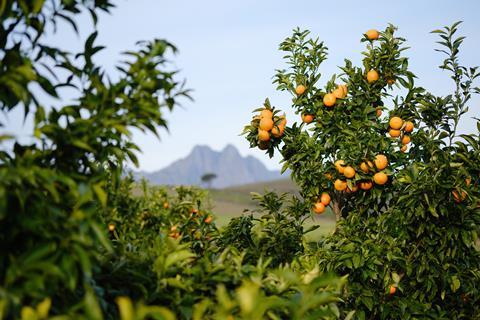With 30 per cent US tariffs looming from 1 August, industry leaders argue South African citrus doesn’t compete with US production and instead maintains year-round market demand

South Africa’s minister of agriculture John Steenhuisen has said that South African agriculture “stands at a crossroads”.
In his budget statement to parliament, Steenhuisen explained that without urgent attention to expanded market access and ever-vigilant biosecurity, the citrus industry, like many others, will lose its ability to create jobs and help grow the country’s economy.
Yesterday’s Budget Vote Address by Steenhuisen came after the announcement that the US plans to impose a 30 per cent tariff on South African imports from 1 August.
The Citrus Growers’ Association of Southern Africa (CGA) said it agrees with the minister’s thoughts that South Africa now has an opportunity to use the next few weeks to urgently negotiate and conclude a trade deal that benefits both parties.
“Another option would be an exemption for seasonal fresh produce,” said CGA chairperson Gerrit van der Merwe.
”Seasonal fresh produce is not like a product produced year-round in a factory.
”South African citrus growers do not threaten US citrus growers or US jobs,” he outlined. ”In fact, our produce sustains interest and demand for citrus when local US citrus is out of season, eventually benefitting US growers when we hand over consumers at the end of our season.”
Sources also noted that as it is the stated intention of US president Donald Trump to help white South Africans, it is hardly appropriate to penalise a section of white farmers who are responsible for creating thousands of jobs in the local community with punitive tariff measures.
It is worth noting that only citrus from the Western and Northern Cape in South Africa is exported to the US.
“Entire rural economies, like that of Citrusdal, are sustained by the US export citrus market,” van der Merwe continued. “A 30 per cent tariff would wreak havoc on these communities.
”For most growers, it is not as simple as substituting one export market with another one,” he explained. ”Even so, some producers from the Western and Northern Cape may have little choice but to try to increase shipments to other countries, rather than face severely diminished returns from the US.
“Such a diversion will add to citrus volumes in those other markets and cause an oversupply, which can substantially reduce returns for all South African citrus producers.”
There are some sceptics when it comes to South Africa’s ability to reverse the decision in just three weeks.
“It is not sure if the South African government, specifically the majority ANC, has the political will to do something about the tariffs in only three weeks,” said one source.
“It seems in any event that the Trump administration’s problem with South Africa really relates to South Africa’s foreign policies and has nothing to do with the fruit trade.”



